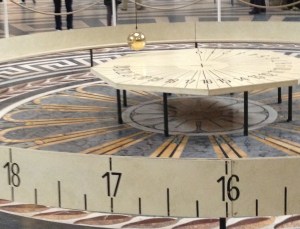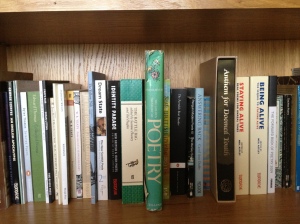In a blog post I wrote here a couple of months ago I wondered what was to become of poetry, in a soliloquy triggered by Salt’s move away from publishing poetry collections. Since then I’ve been musing on why the future of poetry even matters. If my ‘hobby’ were brass rubbing or model railways, it would be enough to just get on with it, with no need to evangelise the world. But I believe that poetry is more fundamental to humanity than that, and it shouldn’t be the minority sport it currently seems to be. In some ways, this is an essay I wrote in my head while studying for my MA at Royal Holloway, but I never wrote it all down until now.
The German poet and academic, Durs Grünbein, wrote a terrific little book of essays called The Bars of Atlantis. In one of those essays he reminds us that Plato, in his utopian book Republic, wanted to ban all poets from his ideal state and replace them with philosophers. The reason for this is that poets are inspired by the gods – they don’t really know what they are saying. Their work appeals to the emotions and the irrational part of our nature. Philosophers, on the other hand, use logic and reasoning to deal with human issues. Plato finds that preferable.
You might say that this was the beginning of that great human project: ‘The Enlightenment’. If humanity is to progress, thought Plato, it must turn away from the emotional and irrational, and value only tangible objects and hard facts. Some other German literary theorists, Thomas Adorno and Max Horkheimer, writing in the early 1940s, when you might have thought they had more pressing preoccupations, stated that; ‘Enlightenment’s Programme was the disenchantment of the world’ meaning, literally, the removal of enchantment, superstition, woo. A switch, if you like, away from feeling and towards knowing. They went further, asserting:
Anything which cannot be resolved into numbers… is illusion; modern positivism consigns it to poetry.’
How much truer that is now than it was in 1944. In our society, poetry barely touches anyone once they are beyond school age, surfacing only at the occasional wedding or funeral. Instead, in the developed world at least, a grasping materialism has won out over every other philosophy ever espoused. And where has that got us?
I think we need poetry more than ever, post World Wars, post 9/11, post credit crunch. And we need it because it connects us to a side of human nature that has been increasingly suppressed since Plato. The arts are the last refuge of our emotional natures – a place where truths can be expressed in feelings rather than numbers – which may allow those truths to penetrate more deeply into our consciousness. I don’t see this as an opposition to rationality, I see it as a complement to it.
Various thinkers have expressed the idea that humankind is a language animal. Not to say that no other species is able to communicate, but for humans, it’s the fundamental ability that sets us apart from others and has made us able to understand, collaborate, record, learn and, hopefully, progress as a species and a civilisation. Because of language we can express complex abstract thoughts – like the ones you are reading now – and understand the mind of another human being. And poetry, being made of language, is one of the chief ways we can meet another mind. Because poetry uses not only the meaning of words but also their sound, rhythm, and cultural resonances, it’s more powerful than other forms of language, and has the ability to transmit not only ideas, but emotions, experiences, memories.
T. S. Eliot invented the concept of the ‘Objective Correlative’. He said that:
The only way of expressing emotion in the form of art is by finding an “objective correlative”; in other words, a set of objects, a situation, a chain of events which shall be the formula of that particular emotion; such that when the external facts, which must terminate in sensory experience, are given, the emotion is immediately evoked.
So far, so dry and dusty. But Eliot is actually saying that it is possible to invent a series of words, with all their associated rhythms, sounds and meanings, which can evoke a specific and particular state of mind in the reader. A poem is a recipe for an emotion. It’s very nearly a magic spell. Eliot, like a number of other poets through the ages, sensed the shamanistic properties of poetry, and poets’ flagrant use of language to alter the states of consciousness of their readers. This can also happen with music, or a movie, but I think poetry is the most concentrated form. Little quantum packets of life heading straight for your brain.
One of my favourite contemporary poets is Alice Oswald. In a piece she wrote for The Guardian on Ted Hughes (a poetic Shaman if ever there was one), she describes the first time she read Hughes’ poem ‘The Horses’:
What struck me straightaway was the real, breathing presence of those horses. They hadn’t been described. They hadn’t been defined or suggested or analysed or in any way poeticised, but summoned up alive, brought back into being in the medium of language, still “steaming and glistening”.
Oswald acknowledges Hughes’ power to ‘summon’ the horses into her mind’s eye. She saw them as Hughes saw them; he shared that moment of his life with someone he didn’t know, and she understood it. Poetry can be powerful.
Maria Miller, our current Culture Secretary, recently said that arts executives need to “hammer home the value of culture to our economy”. She obviously sees the arts she is responsible for as simply commodity entertainment. I think she’s totally missed the point. Culture – the arts – is of value to our whole society and our collective sanity. We live in a world where more than ever we need to understand each other, see the world with another person’s eyes. Only by doing that can we develop empathy and only with empathy can we forge a decent society. Reading, listening to and writing poetry should be a big part of that. That’s why we need to find ways of stretching the appreciation of poetry to a much, much wider audience. That’s why somebody has to keep printing poetry, and putting on poetry events. That’s why the future of poetry still matters.
The photo here is Foucault’s Pendulum, in the Pantheon in Paris. The building was planned as the church of St Genevieve, but part way though building it, the Revolution happened and it is now a “secular mausoleum”. Marie and Pierre Curie are buried there, among many other French dignitaries. I thought it was a nice parable of the triumph of the rational over the emotional.




